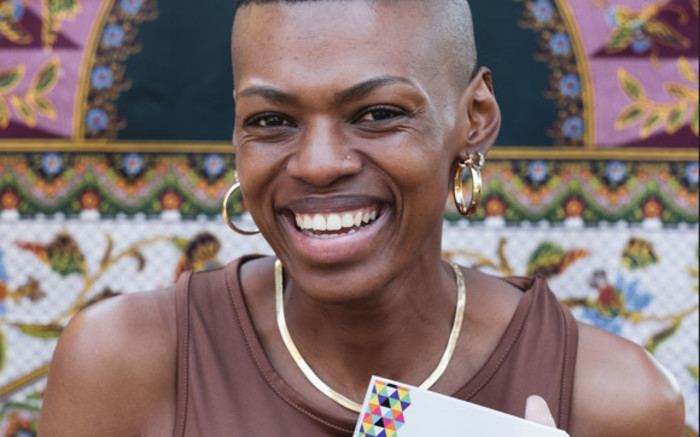‘Ancestory’: A roadmap of yesterday’s learnings for the journey into tomorrow
In her debut book ‘Ancestory’, Sangoma Nokulinda ‘Gogo’ Mkhize distills a lifetime of insights from her family and community life, as well as her experience as iSangoma.
In her debut book Ancestory, Sangoma Nokulinda “Gogo” Mkhize distils a lifetime of insights from her family and community life, as well as her experience as iSangoma. Picture”Supplied
JOHANNESBURG – Ancestors give Africans a shared and personal sense of self-affirmation, identity and belonging.
And there is a need to understand not just the role of our ancestors in our lives, but their place in the larger context of African spirituality.
In her debut book Ancestory, Sangoma Nokulinda “Gogo” Mkhize distills a lifetime of insights from her family and community life, as well as her experience as iSangoma.
READ: Brunch with Gogo Mahlodi: a conversation about spiritual hygiene
“Ubuntu tells us that everybody belongs. Love is a given, not a reward. In isintu, love is the abundant and widespread distribution of acceptance, care and belonging.
Love makes abantu of us.”-Nokulinda Mkhize
Maneli (@violetpertunia) November 6, 2022
“Ancestory aims to provide context, clarity and comfort. I hope that people will engage with the book’s information, stories and anecdotes with curiosity. I hope that people will think “aha! I get it. I remember… this makes sense’. I hope that Ancestory will bring people home,” said Mkhize to Eyewitness News.
The book offers wisdom in a world where the younger generation is displaced from the teachings inherited through ancestry.
Ancestory is a work of reclamation and remembrance. It draws on the timeless wisdom of African forms of knowing and seamlessly integrates history, research and folklore, as well as centuries of cultural intelligence.
I open Ancestory with the following words: “Our ancestors were sharp observers and intelligent craftspeople. They turned their observations of the world, human nature, society and the very reality of existence itself into idioms, praise poetry and epics, proverbs, legends, laws, rituals, beliefs, scientific knowledge, and philosophies passed down to us.”
READ: ‘Umthwalo (own your crown)’: an exhibition by Vonmash on African hair
“The most painful question that I get asked is: ‘Will I find peace, will I be happy?’ I can’t answer that for a person. That is up to an individual to work it up for themselves.”
Gogo Nokulinda Mkhize, Sangoma #GogoSpeakshttps://t.co/m2ueGTyTSW
702 (@Radio702) November 22, 2019
Having been a sangoma since 2008, Mkhize draws her wisdom from life, family, community and her healing practice.
“All of this knowledge, wisdom and intelligence is still relevant to who we are today because it all forms the foundational basis of Isintu: African social, cultural and spiritual cosmologies,” says Mkhize.
The author said that she was inspired and honoured to be able to share information, insights and knowledge from her life in her community and as isangoma that enriches the quality of people’s lives.
“I wrote Ancestory to explore, discuss and critique aspects of some of the most common issues that I have dealt with in my work since 2008. Each section in Ancestory is dedicated to the most common and recurring issues – namely family and community, health and spirit, wealth and power, and of course love.”
The book has a generous offering of research from African writers and scholars, which gives readers access to older sources of African history and thinking.
“Our communities, elders, libraries, songs, practices and stories are encoded with information that teach us the relevance and limitations of isintu. What we need to know lies in consistent, humble and respectful participation.
I do believe that misinformation and controversy is deliberate and wilful ignorance, which I do not address or dignify by entering into debates. Those who want to know, find a way to learn,” said the author.
Ancestory uses various izinganekwane (indigenous folk tales) to reflect on love, life, spirit and community.
READ: Pilani Bubu unites African musicians for inaugural Folklore Festival
“Ancestory is written to be simple, straightforward and not intimidating because it is meant to serve as a starting point for considering the complexity of our past, while gaining intelligence and resilience from our indigenous knowledge to assist in building our future,” said Mkhize.
Gogo Mkhize, who some may know from her _Gogo Speaks: Love and Legacy _talks which focused on practical lessons from isintu for relationships and families, says her book dispels common myths and misconceptions, for example, that ubuntu doesn’t have room for the individual. It also puts key African institutions such as eldership into perspective.
“I use the examples of Mkabayi, bo rakgadi and omalume to show that we must take up the responsibility of our social obligations as they arise because eldership is inevitable and that intergenerational care is crucial to the survival and growth of our communities. This is a roadmap of yesterday’s learnings for the journey into tomorrow.”
Ancestory is available at: https://guided.africa and Amazon.com for readers abroad.
The book is also available from Book Circle Capital in Johannesburg and Clarke’s Bookshop in Cape Town.
For all the latest lifestyle News Click Here

